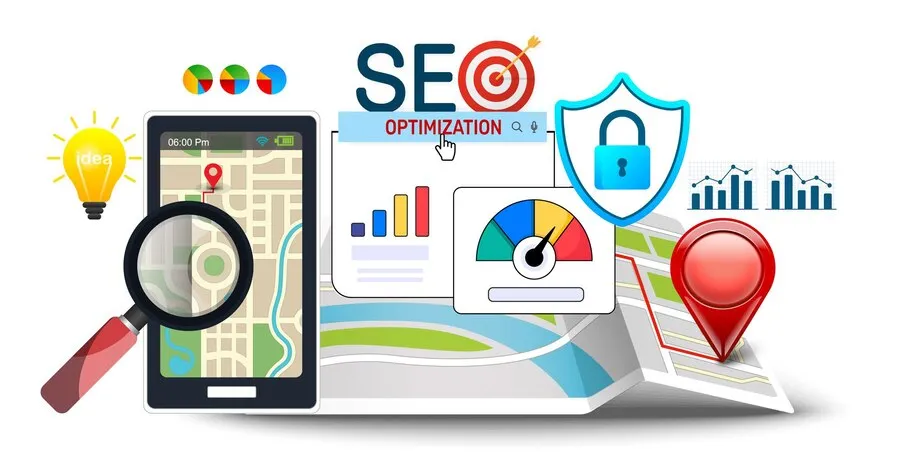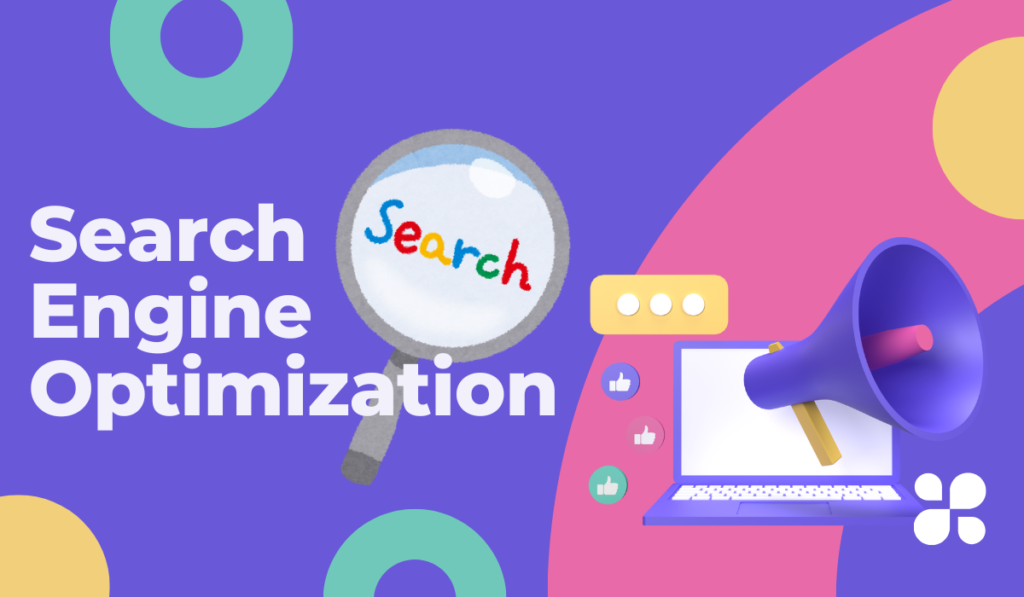
If you are just starting out in search engine optimization, or SEO, it is essential to understand the difference between on-page and off-page SEO. Both play a vital role in any effective SEO strategy.
“What exactly are on-page and off-page SEO?” is a common question to ask. I’ve created a simple comparison between on-page and off-page SEO to help you understand it better. Each idea is covered thoroughly in this blog post.
Table of Contents

What is SEO?
SEO is the process of optimizing a website or web content to improve its visibility on search engines like Google, Bing, Yahoo, Yandex, DuckDuckGo, etc. It focuses on making your website relevant, valuable, and user-friendly.
With search engines relying on complex algorithms to rank pages, SEO ensures that your content aligns with these needs. From keyword usage to technical optimization, SEO helps attract focused traffic, enhance user experience & build brand credibility.
What is On-Page SEO?
On-Page SEO refers to the optimization efforts made on a website. It focuses on elements within your control, such as content, meta tags, headings, and uniform resource locator (URL) structure.
This type of search engine optimization ensures search engines understand your content while providing a good user experience. By optimizing on-page factors, you increase the chances of ranking superb in search results.
Main Factors of On-Page SEO
Here are the extraordinary elements of On-Page SEO you need to focus on:
1. Title Tags and Meta Descriptions
Importance: These are the first things users see in search results.
Optimization Tips: Use target keywords naturally, keep titles under 60 characters or 580 pixels, and keep meta descriptions under 155 characters or 920 pixels.

2. Headings Structure (H1, H2, H3…H6 Sequence)
Importance: Proper heading structure organizes content for both readers and search engines.
Optimization Tips: Use H1 for the main title, H2 for subheadings, and H3 for further breakdowns. Include keywords in headings where relevant.
3. Content Optimization
Importance: Quality content is at the core of SEO. It keeps users engaged and provides value.
Optimization Tips: Write unique, informative, and engaging content. Use keywords naturally and ensure content addresses user intent.
4. Keyword Optimization
Importance: Keywords connect your content with user searches.
Optimization Tips: Conduct keyword research to find relevant terms. Use them in titles, headings, and throughout the content without overstuffing.
5. URL Structure
Importance: A clean URL improves user experience and helps search engines understand your page. SEO-friendly URL is less than 100 characters.
Optimization Tips: Keep URLs short and descriptive. Include keywords and avoid unnecessary characters.
6. Image Optimization (Alt Tags)
Importance: Optimized images improve page load times and make your site accessible.
Optimization Tips: Use descriptive alt text for images, compress images to reduce load times, and name files appropriately.

7. Internal Linking
Importance: Internal links help search engines crawl your site and improve exact navigation.
Optimization Tips: Link to relevant pages within your content using descriptive anchor text. This distributes link equity and enhances user experience.
8. Mobile-Friendliness and Site Speed
Importance: A mobile-friendly, fast website keeps users engaged and reduces bounce rates.
Optimization Tips: Use responsive design, compress large files, and leverage caching to improve speed. Examine your site on various devices to ensure usability.
On-Page SEO is an integral part of a successful SEO strategy. By focusing on these factors, you can enhance your website’s performance, improve rankings, and provide a seamless experience for your users.
Stay tuned for insights into Off-Page SEO and how it complements On-Page SEO techniques in the 2025 Edition of SEO Practices!
What is Off-Page SEO?
Off-Page SEO is to build a strong reputation for your website, making it a trusted source for search engines and users alike. It involves link-building, social engagement, and creating a strong brand presence across the internet.
Main Factors of Off-Page SEO
Here are the key elements of Off-Page SEO to focus on:
1. Backlinks
Importance: Backlinks act as votes from the authority of other websites. They are a major factor in search engine algorithms.
Optimization Tips: Build high-quality backlinks from authoritative and relevant websites. Avoid spammy links as they can harm your rankings.
2. Social Media Optimization
Importance: Active engagement on social media platforms increases brand awareness and drives traffic to your website.
Optimization Tips: Share valuable content on platforms like Facebook, Instagram, and LinkedIn. Encourage user interaction to boost visibility.
3. Guest Posting or Blogging
Importance: Publishing content on other reputable websites expands your reach and improves backlink opportunities.
Optimization Tips: Write high-quality, relevant articles for guest blogs. Include a relevant or natural backlink to your website in the content or author bio.
4. Social Sharing
Importance: Content shared widely across social media, forums, and communities increases visibility and attracts organic traffic.
Optimization Tips: Create shareable content, such as PPT, videos, and blogs. Encourage readers to share your content on their networks—also, post in high DA, PA sites Reddit, and Pinterest like this.
5. Local SEO
Importance: Local SEO helps businesses appear in location-based searches, driving traffic from nearby customers.
Optimization Tips: Optimize your Google My Business profile. Include accurate business details, reviews, and local keywords to attract nearby users.

6. Business Listing
Importance: Listing your business in online directories improves visibility and credibility in local search results.
Optimization Tips: Add your business to platforms like Yelp, Yellow Pages, Trustpilot, and niche-specific directories. Confirm your NAP (Name, Address, Phone Number) details are consistent across all business listings.
The Synergy Between On-Page and Off-Page SEO
Both On-Page and Off-Page SEO are important for a successful SEO tactics. While On-Page SEO optimizes the content and structure of your website, Off-Page SEO builds authority and trust in the digital marketing ecosystem.
In the 2025 Edition of SEO, mastering both aspects is more important than ever for staying competitive and visible in the ever-evolving digital landscape.
Difference Between On-Page SEO and Off-Page SEO
Below is a detailed comparison between On-Page SEO and Off-Page SEO to help you understand their differences:
| Factors | On-Page SEO | Off-Page SEO |
| Definition | Optimization efforts made directly on your website to improve its visibility and usability. | Activities performed outside your website to build credibility, authority, and rankings. |
| Focus | Focuses on optimizing website content, structure, and user experience. | Focuses on promoting your website externally to attract traffic and build authority. |
| Key Activities | Includes optimizing titles, meta tags, content, URL structure, and internal links. | Includes building backlinks, social media marketing, guest blogging, and local citations. |
| Control | Fully controlled by the website owner. | Relies on external platforms and third-party websites. |
| Primary Goal | Improve website structure, make it search engine-friendly, and enhance user experience. | Boost DA (domain authority) and credibility to improve rankings and traffic. |
| Example Techniques | Optimizing keywords in content. Creating mobile-friendly designs. Improving site speed. | Building high-quality backlinks. Engaging in social sharing. Guest posting. |
| Impact on Rankings | Directly impacts rankings by improving website quality and relevance. | Influences rankings indirectly by building trust and authority. |
| Dependence on Others | Independent; actions are performed on your website alone. | Dependent on third-party websites and platforms. |
| Cost | Usually involves time and effort for content creation and website optimization. | May require investment in outreach, influencer collaborations, or guest posting services. |
| Time to Show Results | Results are often visible faster, especially with proper implementation. | Takes longer as it depends on the response and actions of external sources. |
| Examples | Optimized title tags and meta descriptions. Proper URL structures. Internal linking. | Earning backlinks from authoritative sites. Social media engagement. Reviews. |
By combining On-Page and Off-Page SEO strategies, you can create a well-rounded approach to improve your website’s search engine rankings and drive more organic traffic.

Similarities Between Off-Page SEO and On-Page SEO
While On-Page & Off-Page SEO are distinct strategies, they share several common goals and characteristics. Here is a comparison to highlight their similarities:
Goal: Improve Search Engine Rankings
- Both On-Page and Off-Page SEO goal to improve a website’s ranking on (SERPs) search engine results pages.
- They work together to make your website more visible to users and search engines.
User-Focused
- Both strategies focus on enhancing user experience.
- On-Page SEO ensures the website is easy to navigate, while Off-Page SEO works on building trust and credibility, leading to better user engagement.
Importance of Keywords
- Keywords play a role in both strategies.
- On-Page SEO uses keywords within content, headings, and meta tags, while Off-Page SEO uses anchor text in backlinks to improve relevance.
Impact on Website Traffic
- Both strategies help drive more organic traffic to your website.
- On-Page SEO makes your website easier to find and use, while Off-Page SEO brings traffic from other sources through links and social shares.
Long-Term Benefits
- Both On-Page and Off-Page SEO provide long-term benefits.
- While On-Page SEO results are visible more quickly, Off-Page SEO builds trust and authority over time, benefiting your site for a long time.
Optimization Focus
- Both types of SEO involve optimization, whether it is optimizing on-site content or earning high-quality backlinks.
- Both aim to make your website more valuable and trustworthy to search engines and users.
Boost Authority and Credibility
- On-Page SEO builds authority by ensuring quality content and proper structure.
- Off-Page SEO boosts authority through backlinks from trusted external websites, social signals, and reviews.
In summary, both On-Page and Off-Page SEO are integral parts of a comprehensive SEO strategy. When combined, they help improve search rankings, drive organic traffic, and enhance the overall user experience.
Also Read: Major Google Algorithm Updates, Explained – Core Update
Some Important FAQs:
Q 1. What is On-Page SEO?
Ans: On-Page SEO involves optimizing elements within your website, like content, title tags, headings, and internal links, to improve its visibility in search engines.
Q 2. What is Off-Page SEO?
Ans: Off-Page SEO focuses on activities outside your website, such as earning backlinks, guest posting, and social media engagement, to boost website credibility and rankings.
Q 3. Which is more important, On-Page SEO or Off-Page SEO?
Ans: Both are equally important. On-Page SEO ensures your website is optimized, while Off-Page SEO builds authority and trust, enhancing overall rankings.
Q 4. How do On-Page SEO and Off-Page SEO differ?
Ans: On-Page SEO deals with website structure and content optimization. Off-Page SEO works externally, focusing on backlinks, social shares, and brand reputation.
Q 5. Can I achieve good rankings with only On-Page SEO?
Ans: On-Page SEO is essential, but for long-term success and competitive rankings, Off-Page SEO efforts like backlink building are also necessary.
Q 6. What are the benefits of On-Page SEO?
Ans: On-Page SEO improves website performance, user experience, and search engine understanding of your content. It helps in ranking for relevant keywords.
Q 7. How does Off-Page SEO help my website?
Ans: Off-Page SEO builds your website’s authority and trust. It increases visibility, drives referral traffic, and strengthens your online reputation.
Q 8. How can DigiTechfab help with On-Page and Off-Page SEO?
Ans: At DigiTechfab, we provide tailored search engine optimization strategies to optimize your website and build authority through effective On-Page and Off-Page SEO techniques.
Q 9. What are examples of Off-Page SEO strategies?
Ans: Examples include guest posting, building backlinks, engaging on social media, submitting to directories, and getting reviews on third-party platforms.
Q 10. Can Off-Page SEO work without On-Page SEO?
Ans: No, Off-Page SEO cannot deliver results if your website is not optimized. A poor website structure or content can harm rankings even with strong external efforts.


